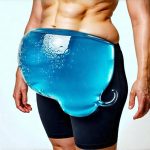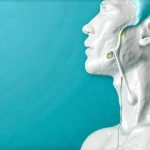Dehydration is often viewed as simply feeling thirsty, but its implications extend far beyond that sensation, deeply impacting fundamental physiological processes. The body’s intricate digestive system relies heavily on adequate hydration to function optimally; from the initial breakdown of food in the mouth to nutrient absorption in the intestines, water plays a crucial role at every stage. Poor hydration habits – consistently failing to drink enough fluids throughout the day – can disrupt this delicate balance, leading to noticeable effects on saliva production and the early stages of digestion, potentially setting off a cascade of issues further down the line. It’s important to understand that these aren’t always dramatic symptoms; often they are subtle changes that individuals might attribute to other factors, making chronic dehydration difficult to identify without conscious awareness.
Saliva isn’t just about moistening food for easier swallowing; it’s a fundamental component of the initial digestive process and overall oral health. It contains enzymes like amylase which begin carbohydrate breakdown, helping us extract energy from our meals even before they reach the stomach. When hydration is insufficient, saliva production decreases, altering the composition and volume of this vital fluid. This impacts not only chewing and swallowing but also the efficiency of enzymatic digestion in the mouth, potentially hindering nutrient absorption and contributing to digestive discomfort. Furthermore, reduced salivary flow can increase the risk of dental problems due to decreased buffering capacity against acids produced by oral bacteria.
Saliva Production & Hydration Levels
The relationship between hydration status and saliva production is remarkably direct. Saliva is primarily composed of water, making it highly susceptible to changes in bodily fluid levels. When you’re dehydrated, your body prioritizes essential functions – like maintaining blood volume and regulating body temperature – over non-essential ones, such as copious saliva production. This means that as dehydration sets in, the salivary glands receive less fluid, resulting in thicker, more viscous saliva, or even a noticeable reduction in its quantity. – This can make swallowing difficult, especially dry foods. – It also reduces the mouth’s natural cleaning action, increasing susceptibility to cavities and gum disease. – The enzymatic activity of amylase is diminished due to reduced volume, impacting carbohydrate digestion from the very first bite.
The human body has sophisticated mechanisms for conserving water when it detects dehydration. One of these involves signaling the salivary glands to reduce output. This isn’t necessarily a conscious decision; it’s an automatic physiological response aimed at preserving fluid balance. Chronic mild dehydration can lead to consistently reduced saliva production over time, potentially creating a feedback loop where decreased salivary flow contributes to discomfort during eating, leading to further reduction in fluid intake. Consider this: even a 1-2% loss of body water can impair cognitive function and physical performance, while also noticeably impacting saliva volume. Understanding irregular eating habits can further help in maintaining consistent digestive health.
Moreover, the quality of saliva changes with dehydration. Adequate hydration results in thin, watery saliva rich in electrolytes and enzymes. Dehydration leads to thick, ropey saliva that lacks these crucial components. This affects not only digestion but also taste perception; food may seem less flavorful when your mouth isn’t adequately lubricated. It’s often this change in taste – rather than thirst itself – that prompts some people to eat more sugary or processed foods, further exacerbating health issues and creating a vicious cycle. The impact of caffeine on gut microbiome can also affect taste perception.
Early-Stage Digestion & the Impact of Reduced Saliva
The initial stages of digestion are profoundly affected by inadequate saliva production due to poor hydration habits. As mentioned earlier, saliva contains amylase, which initiates carbohydrate breakdown. Without sufficient amylase activity, the digestive process is less efficient and requires more work from the stomach and intestines. This can lead to bloating, gas, and discomfort after meals. Beyond carbohydrates, reduced saliva also impacts the initial breakdown of fats and proteins, although its role in these processes is less prominent than with carbs.
Reduced salivary flow hinders the formation of a bolus – the cohesive mass of chewed food that’s easy to swallow. A poorly formed bolus requires more effort from the esophagus to move it down to the stomach, potentially increasing the risk of acid reflux and heartburn. Furthermore, the lack of adequate lubrication can make chewing difficult, leading individuals to consume larger particles of food which are harder for the digestive system to process effectively. This forces the body to work harder throughout the entire digestive journey, diminishing nutrient absorption and potentially contributing to gastrointestinal distress.
The reduced buffering capacity of dehydrated saliva also plays a role. Saliva contains bicarbonate ions that neutralize acids in the mouth, protecting tooth enamel and creating an optimal environment for enzymatic digestion. When saliva flow is diminished, these protective mechanisms are compromised, increasing the risk of both dental issues and digestive problems. This emphasizes how interconnected oral health and overall digestive well-being truly are. The effect of water quality can also impact the buffering capacity of saliva.
The Role of Electrolytes in Saliva & Digestion
Electrolytes – sodium, potassium, chloride, and bicarbonate – aren’t just essential for hydration; they also play a vital role in maintaining the proper pH balance and enzymatic activity within saliva. Dehydration disrupts electrolyte balance, leading to imbalances that further compromise salivary function. – Sodium is crucial for nerve and muscle function, as well as fluid balance. – Potassium helps regulate blood pressure and muscle contractions. – Chloride aids in digestion and maintains electrolyte balance. When these electrolytes are depleted due to dehydration, the effectiveness of saliva as a digestive aid decreases significantly.
These imbalances aren’t merely confined to the mouth; they impact the entire digestive process. Electrolytes are essential for proper stomach acid production, intestinal motility (the movement of food through the digestive tract), and nutrient absorption. Dehydration-induced electrolyte deficiencies can lead to constipation, diarrhea, and other gastrointestinal issues. It’s a systemic problem where localized effects in the mouth – reduced saliva production – become indicative of wider imbalances throughout the body. Fermentable sugars can further disrupt electrolyte balance within the gut.
Restoring adequate hydration isn’t just about drinking more water; it’s also about replenishing electrolytes. This can be achieved through electrolyte-rich foods like bananas, spinach, and coconut water, or by consuming oral rehydration solutions specifically formulated to restore fluid and electrolyte balance.
Recognizing Early Signs of Dehydration & Its Impact on Digestion
Many individuals don’t realize they are dehydrated until they experience intense thirst, but this is often a sign that dehydration has already progressed. Earlier signs are much more subtle and can easily be overlooked. – Dry mouth and a sticky feeling in the throat. – Reduced urination or darker-colored urine. – Fatigue and weakness. – Headaches and dizziness. These early indicators should prompt increased fluid intake before they escalate into more severe symptoms.
The digestive manifestations of mild dehydration are also often subtle but can significantly impact comfort and nutrient absorption. This includes bloating, gas, constipation, and difficulty swallowing. If you consistently experience these issues after meals, even without other obvious causes, consider whether inadequate hydration might be a contributing factor. Paying attention to your body’s signals is crucial; don’t wait until you are parched to drink water.
Strategies for Improving Hydration & Supporting Digestive Health
Establishing consistent hydration habits is paramount for supporting optimal digestion and overall health. – Carry a reusable water bottle with you throughout the day as a constant reminder to drink. – Set reminders on your phone or use a hydration tracking app. – Drink water before, during, and after meals. – Choose hydrating foods like fruits and vegetables (watermelon, cucumbers, oranges). – Limit consumption of dehydrating beverages such as caffeinated drinks and alcohol. Beyond simply drinking more water, prioritizing electrolyte intake is also important, especially after strenuous activity or in hot weather. This can involve incorporating electrolyte-rich foods into your diet or using oral rehydration solutions when needed. By proactively addressing hydration levels, you can significantly improve saliva production, enhance early-stage digestion, and promote overall digestive well-being. Understanding aging and its effect on the digestive system is also key to maintaining optimal hydration as you age. Additionally, be mindful of the impact of alcohol and caffeine on your body’s ability to stay hydrated.


















